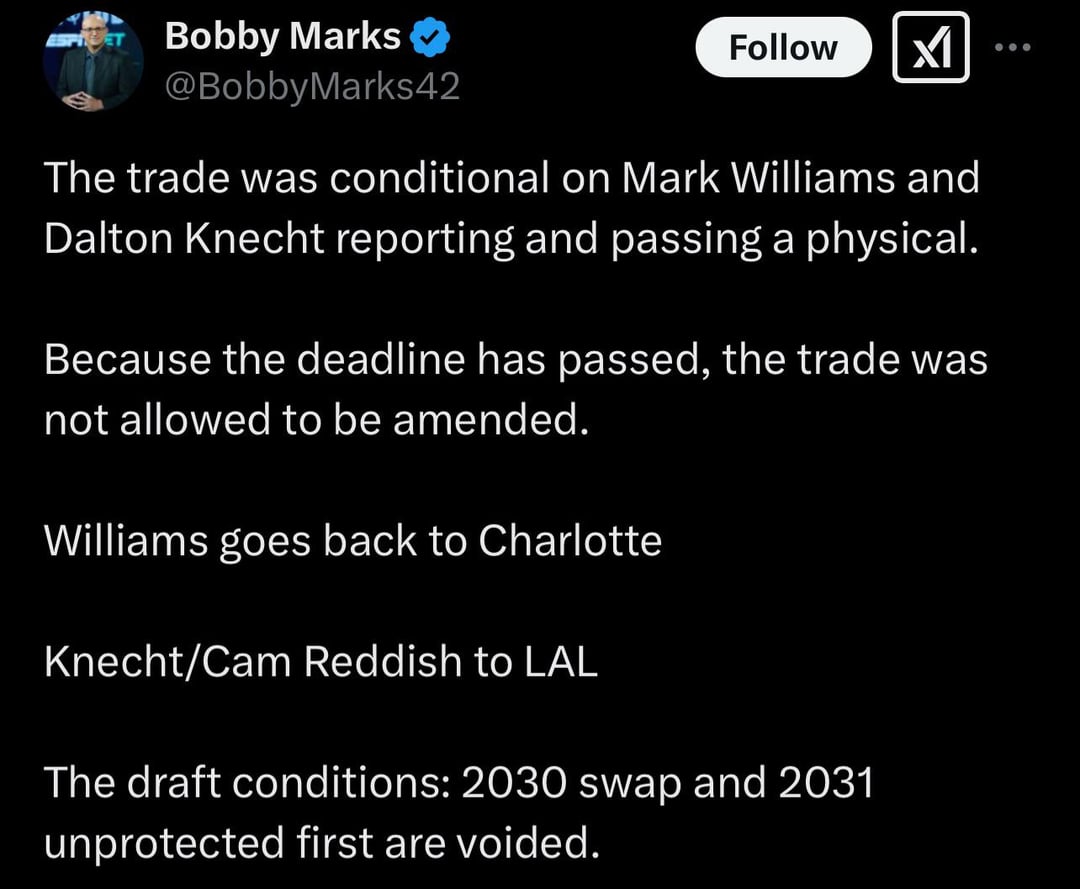In a dramatic turn of events, the Los Angeles Lakers have rescinded their trade for Charlotte Hornets center Mark Williams after he failed a physical examination. The initial deal, announced on February 6, 2025, involved the Lakers acquiring Williams in exchange for rookies Dalton Knecht and Cam Reddish, along with future draft considerations. However, concerns arose during Williams’ physical, leading the Lakers to void the trade.
The Hornets have expressed strong dissatisfaction with the Lakers’ decision and are now challenging the assessment. According to reports, Charlotte has contacted the NBA to dispute the failed physical, questioning the evaluation process conducted by the Lakers’ medical team. The Hornets are exploring their options to contest the nullification of the trade.
Mark Williams, a 23-year-old center, has shown promise on the court but has struggled with injuries throughout his career. Over three seasons with the Hornets, he has been limited to 85 games due to various health issues. Despite these setbacks, Williams has delivered solid performances when healthy, averaging 15.6 points and 9.6 rebounds in 23 games this season.
The rescinded trade leaves the Lakers without a much-needed reinforcement at the center position, especially after trading Anthony Davis to the Dallas Mavericks in exchange for Luka Dončić. In response, the Lakers have signed free agent center Alex Len to fill the void. Len, who was recently waived by the Washington Wizards, brings experience to the Lakers’ roster.
The situation has sparked a dispute between the two franchises, with the Hornets questioning the validity of the Lakers’ medical evaluation. As the Hornets engage with the NBA to challenge the nullification, the outcome of this contention remains uncertain. Both teams are now focusing on adjusting their rosters as the season progresses.
This incident highlights the complexities and potential conflicts inherent in NBA trades, particularly concerning player health assessments. The resolution of this dispute could have implications for future transactions and the protocols surrounding player evaluations.


